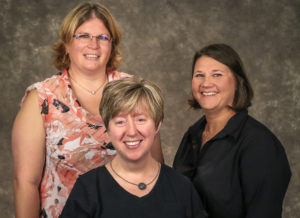What Is Mental Health?
August 22, 2018By: Amy Bennett
Categories: Spiritual Wellness, Your Wellness

By Stacie Newberry, LCSW, Jennifer Riddell, LCSW, and Dawn Rosey, LCSW
Mental health includes our emotional, psychological and social well-being. It affects how we think, feel and act. It also helps determine how we handle stress, relate to others and make choices. Mental health is important at every stage of life – from childhood and adolescence through adulthood.
Myths
- If you can’t see it, it doesn’t exist.
- It’s all in your head.
- Only “those people” have mental health issues.
- People with mental health needs are troublemakers or criminals.
- I’m not depressed because I am not suicidal.
- Only the weak have mental health problems.
Facts
- One in five adults has mental health concerns.
- Mental health does not judge between race, social class, gender or ethnicity.
- Media negatively portrays people with mental health concerns as villains; however, most people with mental health needs are more likely to be the target.
- Many people with a mental health diagnosis are successful in the workforce.
- Mental health is just as important as physical health because mental health plays an important role in your ability to maintain good physical health. It also affects your ability to participate in healthy behaviors.
- Many factors, such as biological makeup, body chemistry, upbringing, traumatic experiences, environment and physical illness, may contribute to a person’s mental health needs.
What You Can Do if You Experience Mental Health Difficulties
- Exercise.
- Read a book.
- Spend face-to-face time with family and friends.
- Write in a journal.
- Meditate.
- Listen to music.
- Eat healthy.
- Don’t isolate yourself.
- Consult a therapist and/or physician if support is needed.
National Suicide Prevention Lifeline 1.800.273.8255
A national network of local crisis centers across the country, the National Suicide Prevention Lifeline provides free and confidential emotional support to people in suicidal crisis or emotional distress 24 hours a day, seven days a week.
Meritas Health Licensed Clinical Social Workers
Our social workers offer a range of mental health care options to help patients improve their quality of life. This free service, which is available to Meritas Health primary care patients, includes treatment related to:

Dawn Rosey, LCSW, Stacie Newberry, LCSW, and Jennifer Riddell, LCSW, are licensed clinical social workers with Meritas Health primary care practices.
- Caregiver burnout
- Feelings of loss of control, isolation and withdrawal
- Grief
- Mood swings
- Sleep problems
- Sexual assault
- Substance abuse
They will document your care and meet with your primary care doctor, may make psychiatric referrals and will not prescribe medications.



